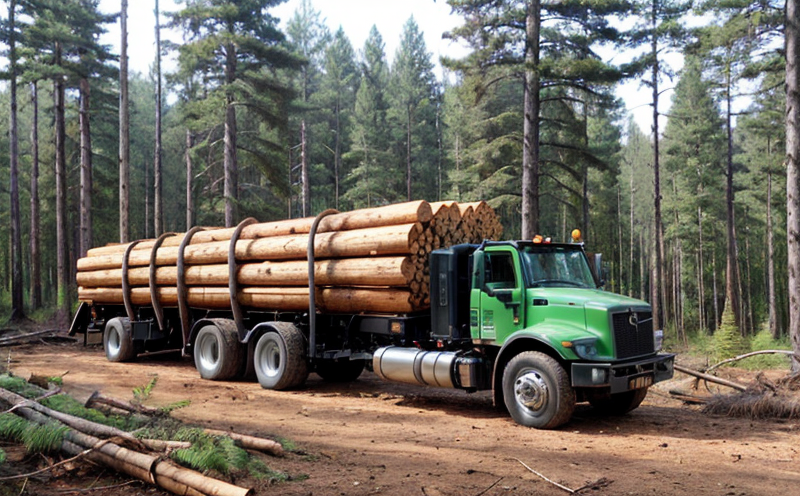Timber Durability Testing (Natural Weathering)
Timber durability testing is a critical process in ensuring that wood products meet longevity and performance standards. Natural weathering tests simulate real-world environmental conditions to assess the resistance of timber to decay, fungi, insects, and other factors affecting its lifespan. This form of testing is particularly important for forestry products used in construction, furniture manufacturing, and outdoor structures.
The process typically involves exposing wood specimens to natural elements over an extended period. During this time, the specimens are exposed to rain, sunlight, temperature fluctuations, humidity, and UV radiation. The goal is to evaluate how these environmental factors contribute to the degradation of the timber material. This testing method provides valuable insights into the durability of different types of wood under specific environmental conditions.
The specimen preparation involves selecting representative samples that reflect the intended use of the timber product. Specimens are cut according to standard dimensions, which may vary depending on the type of test and the size of the timber sample. Common specimen sizes for weathering tests range from 100x50x25 mm to larger pieces, depending on the scale of testing.
The most common materials used in natural weathering tests include:
- Hardwood species such as oak and teak
- Pine and other softwoods for their versatility
- Mixed wood samples representing a blend of different types
The testing process is conducted outdoors, often on test racks or shelters designed to protect the specimens from direct impact while allowing exposure to natural elements. This setup ensures that the tests accurately simulate real-world conditions without introducing artificial variables.
Once exposed, the timber samples are regularly inspected for signs of decay and degradation. Key parameters measured during these inspections include:
- Surface checks for fungal growth
- Weighing to monitor mass loss due to weathering
- Visual inspection for insect activity or damage
- Measurement of physical properties such as hardness, density, and strength
The results from these tests are then compared against established standards. These standards can be international (ISO) or industry-specific, ensuring that the timber products meet quality and safety requirements.
This type of testing is essential for manufacturers looking to improve product longevity and performance in challenging environments. It also helps regulatory bodies ensure compliance with environmental protection regulations. By understanding how different types of wood perform under natural weathering conditions, stakeholders can make informed decisions about material selection and design optimization.
Why It Matters
The importance of timber durability testing cannot be overstated, especially in sectors where longevity is critical. Natural weathering tests provide a realistic assessment of how timber products will perform over time when exposed to the elements. This information is invaluable for:
- Developing new materials and formulations
- Meeting regulatory requirements for sustainable forestry practices
- Educating stakeholders about environmental impacts on wood products
- Improving product performance in outdoor applications
In sectors such as architecture, construction, and furniture manufacturing, the durability of timber is a key factor. By incorporating natural weathering tests into their development process, companies can enhance product reliability and customer satisfaction.
Moreover, this testing helps ensure that timber products contribute positively to sustainable practices by using materials that are less prone to degradation. This aligns with global efforts towards reducing waste and promoting eco-friendly construction methods.
Eurolab Advantages
Eurolab stands out in the field of forestry product testing through its comprehensive approach, state-of-the-art facilities, and experienced team. Here’s why Eurolab is your go-to partner for timber durability testing:
- Expertise in Environmental Simulations: Our dedicated weathering test chambers replicate various environmental conditions found globally, providing accurate results that are transferable to real-world scenarios.
- Advanced Specimen Preparation: We offer specialized specimen preparation services tailored to your specific testing needs, ensuring that the samples accurately represent your products.
- Comprehensive Reporting: Our detailed reports provide a thorough analysis of test results, including visual documentation and quantitative data. This ensures that you have all the information needed for informed decision-making.
- ISO/IEC Accreditation: Eurolab is ISO/IEC 17025 accredited, ensuring the highest level of quality in our testing services.
- Dedicated Customer Support: Our team is always available to assist with any questions or concerns you may have during the testing process. We offer personalized guidance and support throughout your project lifecycle.
With Eurolab, you can trust that your timber durability tests will be conducted with precision, reliability, and accuracy. Let us help you ensure that your products meet the highest standards of quality and performance.





